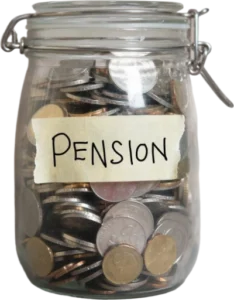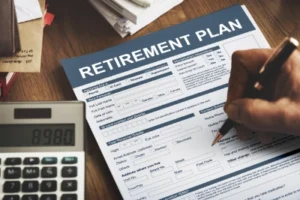Getting Started with AOW Pension (Algemene Ouderdomswet)

The first thing you are probably thinking is, “What does AOW mean?” The abbreviation is short for Algemene Ouderdomswet (The Dutch General Old Age Pensions Act). The government first instituted AOW pension in the Netherlands back in 1957, and since then, it has been one of the main retirement provisions paid to pensioners.
The public employees retirement system relies heavily on the combination of three pillars: AOW state pension paid for by current workers (the first pillar), workplace pensions funded by the investments of employers and employees (the second pillar) and private pensions (third pillar). In this page, we’ll take a closer look at AOW pension and how it works.
What Is AOW Pension?
AOW is the cornerstone of the public employees retirement system. Everyone who has either lived or worked in the Netherlands can receive a basic state pension as long as they have reached the Dutch retirement age.
For a long time, this was set at 65 years, however, recently it has been rising by a few months every other year. The current Dutch retirement age is 67, and you can use a pension age calculator to find out your own.
AOW is meant to give you a basic income when you retire, but it is rarely enough to cover all your expenses. Most people have extra income from other pension funds or savings on top of it, typically one of the two other pillars that make up the foundation of pension rights in the Netherlands.
The money for AOW comes from taxes paid by people currently working in the country, not from money you have personally saved up. However, this will change soon due to the new Future Pensions Act, which we cover further down the page. The AOW pension system is managed by the government’s Social Insurance Bank (SVB).
How Is AOW Calculated?
You build up your AOW over 52 years. For each year you live or work in the Netherlands, you earn 2% of the full pension. If you’ve lived in the Netherlands for all 52 years before your retirement age, you will get the full amount. You don’t need to have a job to build up your AOW – just living in the country counts.
How Much AOW Will You Receive?
 The amount of state pension depends on whether you are benefiting from an individual plan or a couple’s plan. Married or cohabiting couples each receive 50% of the national minimum wage, while single pensioners receive 70%. These numbers change twice a year, once in June and once in December.
The amount of state pension depends on whether you are benefiting from an individual plan or a couple’s plan. Married or cohabiting couples each receive 50% of the national minimum wage, while single pensioners receive 70%. These numbers change twice a year, once in June and once in December.
AOW Monthly Amounts (as of Jan 2025)
- Monthly AOW payments for an individual pension plan: € 1.580,92 gross (Net: €1.497,77 if tax credit has been used, otherwise €1.214,77)
- Monthly AOW payment for a couple: Approx. € 1.081,50 / gross per person (Net: €1.024,62 if tax credit has been used, otherwise €831,12)
How Can I Apply for AOW?
Applying for AOW is simple. Four months before your AOW age, the SVB sends a letter to your address. It contains information on how to apply online. Make sure your data at the municipality (BRP) is correct. Your timely registration will help avoid any delays.
If you reside outside of the Netherlands, you will need to apply for AOW 6 months prior to your individual retirement age. Residents of EU or EEA countries can usually claim their state pension through the pension provider in their country of residence. Alternatively, if you live outside of these areas, you will need to contact SVB to get their advice on your case.
Eligibility for AOW
As long as you have lived or worked in the Netherlands, you will be insured under the AOW Dutch pension. This also applies to the self-employed, who contribute their share to the AOW each year via their annual tax returns.
Can I Still Get My Pension if I Live Abroad?
Depending on where they migrate, pensioners who live outside of the Netherlands may occasionally be entitled to collect their retirement payments. The SVB website has additional information on the subject. In the event that you move abroad, you might be eligible to transfer your Dutch pension. To learn about the possible repercussions, it is crucial to speak with your Dutch pension fund.
Can I Receive AOW if I Never Worked in the Netherlands?
Yes, you can receive AOW even if you never worked in the Netherlands. As long as you lived in the Netherlands and were registered, you built up AOW rights automatically for each year you resided in the country, regardless of whether you had paid employment.
What if I Have Gaps in My Insurance?
If there are years during which you were not insured, for instance, if you lived abroad (voor Nederlanders in het buitenland), your AOW pension will be reduced accordingly. You receive 2% less for each year you were not insured, so your AOW is proportional to the number of years you were covered.
Let’s work with some examples:
- Alex is British and became a resident of the Netherlands at age 21.
- Jordan moved to the Netherlands at age 18 as a student.
What is their pension breakdown?
For Alex:
- Even though she has worked full-time and paid taxes consistently since moving, her pension build-up only began from the moment she became a Dutch resident at 21.
- From age 15 to 21 (6 years), Alex did not build AOW rights. Therefore, she lost 6 × 2% = 12% of her total AOW entitlement.
- By age 67, assuming continuous residency from 21 onwards, she’d accumulate about 88% of the full AOW pension.
For Jordan:
- Jordan, who was a student and had residency from the age of 18 (but not working), automatically gains 2% per year of the AOW pension.
- He has full entitlement to this money. He also worked 5 years in the Netherlands: 6% + 10% = 16% AOW pension from the age of 67.
- Of course, this situation is not ideal, so many people voluntarily continue paying their contributions to AOW from abroad. This way, they maintain their pension rights. You can find out more about voluntary pension contributions on the SVB website.
How Do I Check My AOW?
You can view your AOW pension in your annual pension statement by logging into your account on the SVB website. You can also get in touch with them to receive your statement.
Can AOW Be Inherited?
AOW benefits are a personal entitlement, which is not transferable to heirs or surviving family members. However, a surviving partner can receive a higher amount of AOW (as an individual) or qualify for a separate survivor’s benefit (ANW), depending on the situation.
Can You Work While You Receive AOW?
Those who have recently reached the retirement age in the Netherlands can continue to work and still receive AOW. There is no income limit for working after your AOW age. Your employment income won’t reduce your pension either.
However, it might affect taxes and other benefits. In fact, those who decide to start a business over the age of 50 can benefit from some tax reliefs. Always check how this may impact your overall financial situation with your pension provider.
If you are seeking new career opportunities, partnering with a trusted recruitment agency like Blue Lynx can make all the difference. We can also help you find an employer who is compliant and will provide you with the appropriate benefits.
AOW and Taxes
Although your pension contributions are not taxed, any AOW payments you receive are treated as taxable income. The amount deducted depends on your total yearly income. However, older residents often benefit from lower tax rates. Filing a tax return ensures you pay the correct amount or receive a refund.
What Are the Upcoming Changes in the New Pension Act (nieuwe Pensioenwet)?
The Pension Act, which you may also find as the Future Pensions Act (Wet toekomst pensioenen), was voted in 2023, transforming the way employees (the self-employed included) and employers handle their pension contributions, introducing new laws.
There are three main reasons the Pensions Act was passed:
- Pensions will become more personalised and clearer, with each worker having an individual pension account, where their profits and losses are clearly displayed.
- The pension system will be more suitable for people who often change jobs. Instead of accumulating your retirement at the end of your career, employees will now be able to add to it at any point in their lives and careers.
- The New Pension Act makes sure there are reserves in everyone’s funds, and reductions of the sums are more limited. Before the new Pensions Act, investments were closely tied to economic status – if the economy was doing poorly, pensions were also reduced.
 The Future Pensions Act comes into effect officially on January 1, 2027, by which time employees, employers and pensioners will need to have updated their pension plans.
The Future Pensions Act comes into effect officially on January 1, 2027, by which time employees, employers and pensioners will need to have updated their pension plans.
Additionally, these changes will result in several other benefits:
- The Dutch pension age will not rise as quickly.
- Conditions for early retirement will improve.
- Heavy physical labourers will receive better retirement conditions.
- Pensioners will be allowed to withdraw a lump sum from their retirement savings (to a maximum of 10% from their accumulated fund).
- Survivor’s pension (nabestaandenpensioen) from the deceased will be available before the start of the retirement date.
- Individuals will be able to view the specific amount of their pension accrual.
While many changes are taking place, the goal of the new Pensions Act remains the same – to share the contributions made to retirement funds. That way the financial risks are shared between the employer and the employee.
How Can You Prepare for the Changes?
To get ready for the new pension rules, employer groups, unions, and work councils should get together to create a clear plan for moving over to the new pension system. This plan will outline the steps and decisions everyone needs to make. Here’s what you should expect:
- Decide what the new pension scheme will look like for your company or group.
- Choose when you will switch to the new pension rules.
- Figure out if you will convert all the pension savings that employees and retirees have already built up into the new system.
- Discuss if and how you will compensate employees who might lose out because of the changes.
- Decide whether you need to set aside extra money to cover any unexpected problems during the switch.
This can ensure a smooth and fair transition to the new pension scheme.
Increasing the Amount of Your Dutch Pension
Relying solely on the Dutch state pension may not be enough to secure your financial well-being in retirement. To enjoy greater stability and comfort later in life, it’s advisable to enhance your income with additional support from workplace pension schemes, personal savings plans, or a combination of both.
Key Points to Remember
- AOW is for those who lived or worked in the Netherlands.
- You build rights from age 15 to retirement.
- Full pension = 52 years of residency.
- Apply four months before your AOW age.
- Living abroad may affect your pension.
- Pensioners can work without losing AOW benefits.
- Tax rules still apply after retirement.
Understanding your AOW pension is essential for ensuring a stable income after retirement. Lifelong residents and expats should know their rights, benefits, and responsibilities under the Dutch pension system to help them plan confidently for the future.
